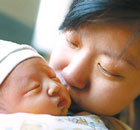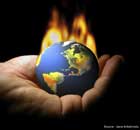Asia-Pacific
Bosworth aims to revive DPRK nuke talks
(Xinhua)
Updated: 2009-12-09 06:55
WASHINGTON: Stephen Bosworth, US special envoy for the Democratic People's Republic of Korea (DPRK), aims to bring Pyongyang back to the stalled six-party talks in his visit which began Tuesday, said a US State Department spokesman.
Spokesman Philip Crowley said in a Washington briefing Tuesday that Bosworth's visit aims to see if the DPRK "is prepared to return to six-party talks and to reaffirm their commitments under the 2005 joint communique."
Bosworth arrived in Pyongyang Tuesday afternoon, and was hurried away for meetings, without talking to reporters.
Crowley said Bosworth would have "high-level, authoritative interactions" with DPRK officials, and the primary meetings would occur Wednesday. But he said the envoy is not in place to send out "play by play" reports on Tuesday, and he is unsure who he has already met.
Crowley also said a peace treaty should be discussed within the six-party talk framework.
"On the issue of a peace treaty, obviously the United States is not the only party to that peace treaty. That would have to be done in a multilateral context."
The DPRK shut down Yongbyon nuclear facilities in 2007 under a six-party deal. In April, it quit the six-party talks and announced it was resuming the reprocessing of plutonium from spent fuel rods at the reactor there.
It conducted an underground nuclear test in May and declared it was in the final phase of an experimental, highly enriched uranium program -- another way to make an atomic bomb.
However, tensions began to thaw recently, and the DPRK has expressed willingness to return to the six-party talks involving itself, the United States, China, the Republic of Korea, Japan and Russia, if it has satisfactory talks with Washington.
The meetings would be the first bilateral meeting between the two sides since US President Barack Obama took office in January. DPRK nuclear envoy Ri Gun visited the United States in October and met twice with Sung Kim, the US special envoy to disarmament talks. However, Ri was attending a meeting held by the National Committee on American Foreign Policy (NCAFP) at that time, and the US government wouldn't confirm those meetings as bilateral talks.











